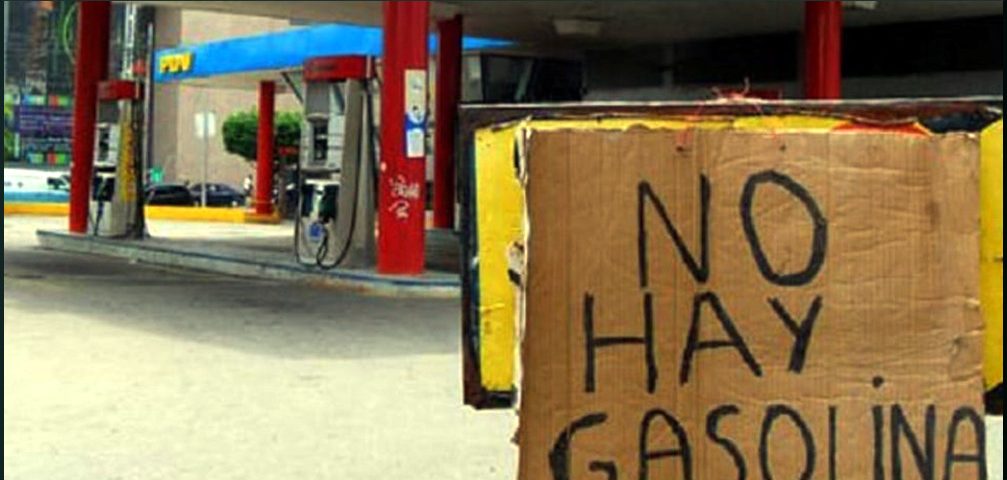by Paul Dobson, published on Venezuelanalysis, May 31, 2021
Mérida, May 31, 2021 (venezuelanalysis.com) – The United States has ruled out lifting sanctions against Venezuela, quelling hopes of a policy reversal from the Joe Biden administration.
Speaking with self-declared ‘interim president’ Juan Guaidó on a weekly digital broadcast called Aló Embajador (Hello Ambassador) last Thursday, US Charge d’Affaires to Venezuela James Story manifested that sanctions relief would be a “mistake” under current conditions.
The Colombia-based diplomat went on to explain that the Biden White House would only consider a policy shift upon receiving “irreversible,” “conclusive” and “fundamental changes” from Caracas. While Washington’s representative offered no further details on what these changes may entail, Guaidó has previously established President Nicolás Maduro’s resignation, alongside new presidential elections, as preconditions for sanctions relief.
Story’s statements come amidst speculation over whether Biden plans to continue Donald Trump’s aggressive stance towards Venezuela or heed to domestic and international pressure for sanctions relief.
The blockade, which has hampered Caracas’s Covid-19 vaccination efforts and caused severe fuel and diesel shortages, has been condemned by a range of international actors, including United Nations General Secretary Antonio Guterres, Pope Francis, and most recently UN Special Rapporteur on the Negative Impact of Unilateral Coercive Measures Alena Douhan, who described it as “devastating” and “illegal” after visiting the country.
Government-opposition talks
During the program, Story also green-lighted recent efforts to set up dialogue between the Maduro administration and the Guaidó camp, in what could represent a significant shift from Washington’s stance towards previous efforts in 2014, 2017-18 and 2019.
“We [the US government] support the democratic forces in Venezuela, the Venezuelans, in this process of dialogue,” he said, claiming that the opposition forces were “united” in their pro-talks posture. “It’s as if it were Maduro negotiating against all of Venezuela,” he argued.
Earlier this month, Guaidó indicated that he is willing to participate in Norway-mediated talks, with former deputy and close ally Freddy Guevara reportedly meeting government officials since. During his video message Guaidó mentioned using sanctions relief as a bargaining “incentive” during the negotiations.
For his part, Maduro also reaffirmed his willingness to engage in new talks on Thursday. The president did, however, establish three preconditions: the lifting of all unilateral measures against Venezuela; the return of frozen or stolen foreign assets; and recognition of sitting public powers such as the National Assembly.
“If they want talks, then we are ready,” he said earlier this month. “We are well trained in political, diplomatic and peaceful dialogue towards the economic recuperation and the coming together of all Venezuelans.”
The Maduro government has found increasing common ground with opposition sectors of late, holding ongoing workgroup meetings with center-right and rightwing parties as well as high-profile business sectors with a track record of anti-Chavista antagonism. Government deputies have also forged alliances in the National Assembly to boost controversial legislation such as the Anti-blockade Law and the Special Economic Zone Law. Both bills sparked strong criticism from left-wing sectors, which have denounced an “anti-worker and privatizing pact” between the government and the opposition.
Apart from sanctions relief and economic aid, Guaidó has suggested that electoral guarantees for the November 21 “mega elections” may be on the agenda for talks.
Initial reports suggest that a range of Venezuelan opposition parties plan on participating, possibly including forces which have boycotted all elections since 2017. Figures such as two-time former presidential candidate Henrique Capriles have endorsed the electoral path after two influential anti-government politicians were recently appointed to the National Electoral Council (CNE).
“Those who previously said they wouldn’t take part are now requesting permission to sign up candidates,” claimed Maduro last week in reference to Guaidó and associates. “They have been given the order from the North to sit down for talks and participate in elections,” he went on to say, suggesting that Guaidó was eyeing the influential Miranda State governorship.
Apart from the regional contests, in which governors, mayors, and regional and local councilors are due to be elected, efforts are also underway to force a presidential recall referendum in 2022 after a coalition of opposition organizations grouped in the Venezuelan Recall Movement introduced a petition to the CNE last Tuesday.
“Our objective is for the people to be able to freely decide their destiny through a ballot if they want Maduro to continue in Miraflores or if new presidential elections should be held,” explained spokesperson Nicmer Evans.
Should the bid be ruled in order, the groups backing the move will need to collect around four million signatures to trigger the referendum. In 2016, efforts to recall Maduro during his first term were derailed after electoral authorities discovered a vast array of irregularities during the early stages of the process.
Venezuela’s Constitution guarantees the right to hold a recall referendum halfway through an elected representative’s term. Should the incumbent fail to win the vote, new elections are mandated within 30 days. The mechanism has only ever been applied against one president, with Maduro’s predecessor Hugo Chávez winning a recall referendum in 2004 by a landslide. For his part, Maduro expressed confidence over the prospect, encouraging opposition forces to abandon their previous violent tactics and adhere to constitutional mechanisms.
